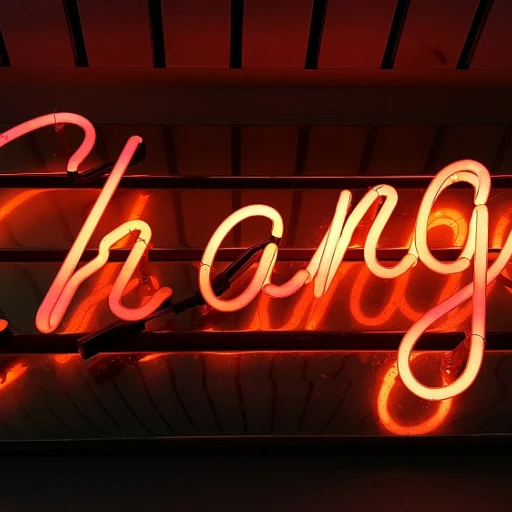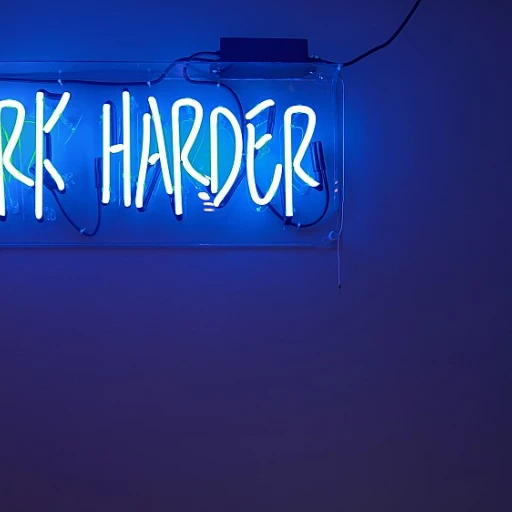
Understanding Title IX Violations
Unpacking the Implications of Title IX Allegations
Title IX violations encompass allegations ranging from sexual misconduct, harassment, to dating violence. When a student is accused, it sets off a series of school-mandated procedures that are both intricate and emotionally taxing. Accused students must come to terms with the school's policies and processes to effectively navigate the situation. In cases of sexual misconduct or assault allegations, adherence to Title IX regulations becomes paramount, guiding how schools conduct their investigations. Understanding the scope and implications of a Title IX case helps not only in facing the proceedings but also in understanding one's rights. Knowing what constitutes a Title IX violation can prepare students and advisors for what might unfold during the hearings. Schools have protocols to ensure compliance with federal regulations, yet it's crucial that accused students also rally their support systems. Contacting a Title IX advisor may be beneficial. Such advisors can lend insight into the proceedings and help interpret the evidence against the accused. Additionally, it is vital to consider one's legal rights during this process. Consulting with an attorney who specializes in Title IX cases can provide necessary legal advice, ensuring that due process is respected. Accused individuals should be aware of the possibility of being wrongly accused and understand the steps to guide through a situation where they believe the wrongdoing is unsubstantiated. The role of legal representation cannot be overstated as it often aids in challenging or verifying the legitimacy of the accusations. The impact of these allegations also resonates in a broader scope, affecting not only the accused student but possibly their educational and professional careers. As such, conducting background checks for clarity on past or pending charges could be beneficial. Individuals might wonder, "Does adjudication withheld appear on background checks?" It’s an area worth exploring for anyone facing an investigation. Access to this information can be critical as students navigate these waters, ensuring their rights are preserved and respected.The Role of Memory in Title IX Accusations
The Influence of Memory on Accusations
When facing a Title IX accusation, especially one related to sexual misconduct or sexual harassment, the role of memory becomes critical. An accused student may find themselves struggling to recall specific details about the event in question. This difficulty can complicate the investigation, especially if the alleged incident occurred some time ago, and can impact how evidence is perceived during the school title proceedings. Title IX hearings heavily rely on the narratives presented by both parties involved, making it crucial for the accused to accurately remember and recount their version of events. Falsely accused individuals might face the challenge of disproving allegations based solely on their ability to recall details, while school policies increasingly emphasize the importance of thoroughness in the investigation and hearing process to safeguard the rights of both the accused student and the accuser. Students facing such accusations might benefit from seeking guidance from a title advisor or attorney. Legal advice can often help navigate through the complexities of memory issues during title investigations. Accused students are advised to maintain consistency in their statements, ensure that they are well-prepared for hearings, and bring forward any tangible evidence that might support their case. Additionally, the emergence of social media platforms as evidence sources adds another layer to the investigation process as digital footprints can be scrutinized during an investigation. Therefore, students should be cautious about their online presence and understand how these factors can be presented as evidence. Given the intricate dynamics of memory in such cases, it’s crucial to seek professional legal advice early in the process to understand individual rights and responsibilities. For more insights on how memory and similar elements appear on background checks, refer to resources that deepen understanding of the visibility of pending charges in background checks. Such knowledge can aid in navigating the complexities faced when accusations arise.Background Checks and Title IX
Background Checks in the Context of Title IX
When a student is accused of a Title IX violation, such as sexual misconduct or harassment, the implications can extend beyond the immediate school environment. Background checks play a crucial role in how these accusations are perceived and handled by educational institutions and potential employers. Understanding the nuances of this process is essential for accused students and their advisors.
Title IX investigations are a critical part of school policies, aiming to address issues like sexual assault and dating violence. However, the outcomes of these investigations can significantly impact an accused student's future, especially when it comes to background checks. Schools often have specific procedures in place to ensure that the rights of both the accused and the accuser are protected during the investigation process.
The Impact of Title IX on Background Checks
Background checks may reveal information about a student's involvement in Title IX proceedings, which can influence decisions made by schools and employers. For instance, if a student is found responsible for a Title IX violation, this information might appear in a background check, affecting their educational and career opportunities. Conversely, if a student is falsely accused or wrongly accused, it is crucial to ensure that their record accurately reflects the outcome of the investigation.
In some cases, schools may issue a contact order or other measures to prevent further interaction between the accused and the accuser. These actions, while intended to protect all parties involved, can also be documented in background checks, potentially impacting the accused student's reputation and future prospects.
Legal and Ethical Considerations
Accused students should seek legal advice to navigate the complexities of Title IX investigations and background checks. An experienced attorney can help guide wrongly accused individuals through the process, ensuring that their rights are upheld and that any evidence presented is thoroughly examined. This is particularly important in cases where social media or other informal channels may have influenced the proceedings.
For more insights on how background checks intersect with legal processes, you can explore the essentials of business entity searches and how they relate to broader investigative practices.
Trends in Background Check Practices
Emerging Practices in Background Checks
In recent years, the landscape of background checks has evolved significantly, especially in the context of Title IX violations. Schools and institutions are increasingly adopting more comprehensive and nuanced approaches to ensure fair and thorough investigations. This shift is crucial for accused students who face the daunting process of defending themselves against allegations of sexual misconduct or harassment.
Digital Footprints and Social Media
One of the most notable trends is the growing emphasis on digital footprints. Social media platforms have become a critical component of background checks. Investigators often scrutinize online activities to gather evidence, which can either support or refute claims of sexual misconduct. This practice underscores the importance of maintaining a responsible online presence, as digital interactions can significantly impact the outcome of a Title IX case.
Enhanced Screening Techniques
Background checks now frequently incorporate advanced screening techniques. These include cross-referencing information from various databases and utilizing sophisticated algorithms to detect inconsistencies or patterns of behavior. Such methods help ensure that the investigation process is both thorough and unbiased, providing a more accurate picture of the accused student's history and character.
Legal and Ethical Implications
The integration of these new practices raises important legal and ethical considerations. Schools must balance the need for comprehensive investigations with the rights of the accused. This includes ensuring that the process respects privacy and adheres to legal standards. Advisors and attorneys play a crucial role in guiding wrongly accused students through these complexities, helping them navigate the intricacies of school policies and Title proceedings.
Support Systems and Resources
As background check practices evolve, so too do the resources available to accused students. Many institutions now offer access to Title advisors and legal support to help students understand their rights and the investigation process. These resources are invaluable for those who may feel overwhelmed by the accusations and the subsequent hearings.
In conclusion, staying informed about these trends is essential for anyone involved in Title IX cases. Understanding the nuances of background checks can provide accused students with the knowledge and tools they need to effectively face the challenges of a Title investigation.
Legal and Ethical Considerations
Legal Framework and Ethical Boundaries
When accused of a Title IX violation, understanding the legal and ethical landscape is crucial. Title IX proceedings are governed by federal regulations, but each school may have its own policies that dictate how these cases are handled. Accused students must be aware of their rights and the legal processes involved. This includes understanding the role of the Title IX coordinator and the procedures for hearings and investigations.
Rights of the Accused
Accused students have specific rights during Title IX investigations. These rights include the right to an advisor, the right to present evidence, and the right to a fair hearing. It is essential for students to contact an attorney or a Title IX advisor to help navigate these proceedings. Legal advice can be invaluable, especially if the accused student feels they have been wrongly accused or face a complex case involving sexual misconduct or harassment.
Ethical Considerations in Title IX Cases
Ethical considerations play a significant role in Title IX cases. Schools must ensure that their processes are fair and unbiased. This includes maintaining confidentiality and avoiding conflicts of interest. Accused students should be treated with respect and dignity throughout the process. Ethical guidelines also extend to the use of social media, where both the accused and the accuser must be cautious about what they post, as it can impact the case.
Balancing Legal and Ethical Obligations
Schools face the challenge of balancing their legal obligations with ethical considerations. They must conduct thorough investigations while ensuring that the rights of all parties are protected. This involves adhering to school policies and federal guidelines, as well as providing support to both the accused and the accuser. In cases of sexual assault or dating violence, schools must be particularly sensitive to the needs of the students involved.
Navigating Accusations: Tips and Resources
Guidance for Accused Students Facing Title IX Allegations
Navigating a Title IX accusation when you don't recall the incident can be daunting, but understanding your rights and the process involved can significantly aid in your defense. Here are some practical steps and resources to consider:- Contact a Title Advisor: When accused of sexual misconduct or any Title IX violation, it's crucial to immediately seek guidance from a title advisor or contact order coordinator at your school. They can provide clarity on school policies and the specific procedures involved in your case.
- Legal Representation: Consider hiring an attorney who specializes in Title IX cases. An experienced legal advisor can guide you through the investigation and help build your case, especially if you believe you may have been wrongly accused.
- Understand Your Rights: Accused students have specific rights during Title IX proceedings. It's essential to be aware of these rights, which include being informed of the allegations and the opportunity to review all evidence presented during the hearing.
- Gather Evidence: Start collecting any relevant evidence that might support your case. This could include contact logs, emails, and any potential witnesses who can testify on your behalf. Gathering evidence is critical if the allegations involve complex issues like sexual harassment or dating violence.
- Prepare for the Hearing: Fully participate in the title investigation and be ready for the hearing process. This preparation includes understanding the school's title policies and the nuances of the title investigation.
- Utilize Resources: Many schools offer resources for students facing accusations, including counseling services, which can assist in managing the emotional stress of the situation. Additionally, social media and other online platforms can be sources of both information and misinformation; tread carefully to avoid jeopardizing your case.













